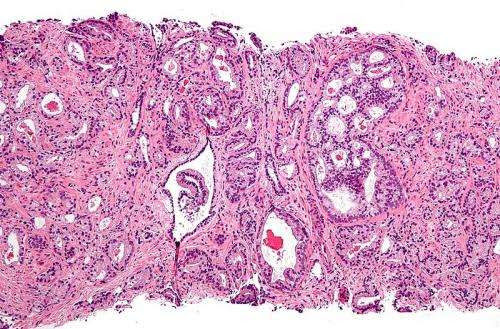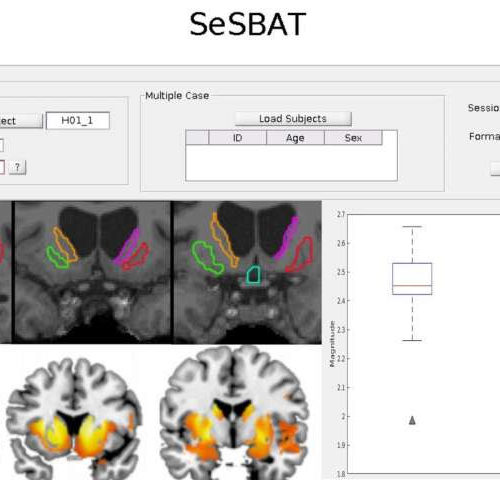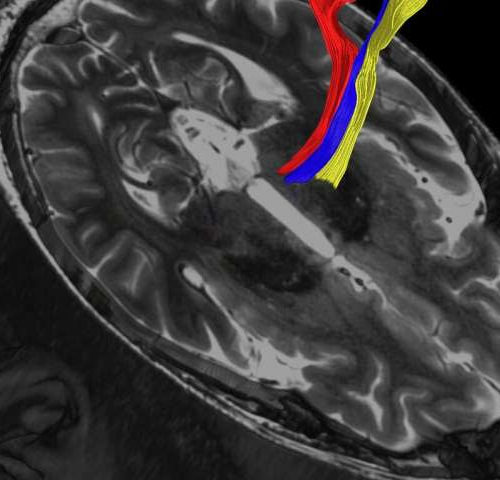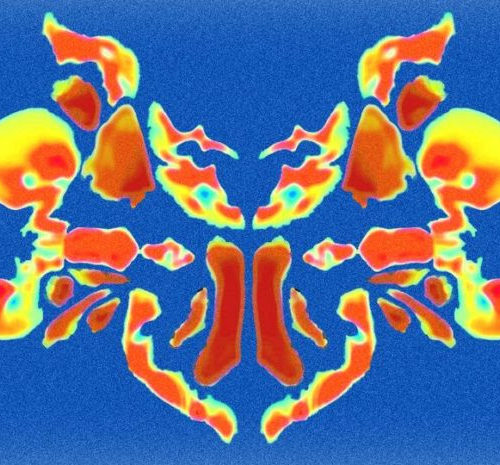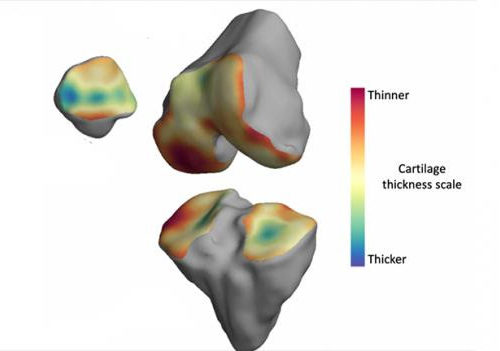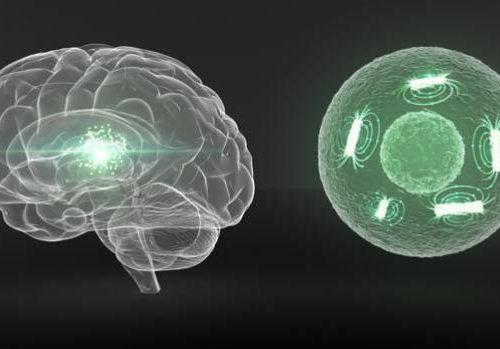Bad news for anyone with allergies: You should should stop rubbing your eyes ASAP. Daniel Gatinel, an ophthalmologist and head of the anterior and refractive surgery department of the Rothschild Foundation, took an MRI of a healthy patient rubbing their eyes to see if it might cause certain eye conditions. The result was horrifying. That’s right....
Tag: <span>MRI</span>
How to make comparing prices of an MRI or colonoscopy as easy as shopping for a new laptop
by Morgan Henderson, Morgane Mouslim, The Conversation Credit: Pixabay/CC0 Public Domain Health researchers have long argued that the key to reining in surging health care costs is to tackle the high prices of services, and one potential way to do this is to provide patients with price transparency. That is, if people know how much a procedure such as a...
Clinical trial: Using MRI for prostate cancer diagnosis equals or beats current standard
by Ontario Institute for Cancer Research Micrograph showing prostatic acinar adenocarcinoma (the most common form of prostate cancer) Credit: Wikipedia The results of a Phase III randomized clinical trial have shown that when it comes to detecting clinically significant prostate cancer, Magnetic Resonance Imaging (MRI) with targeted biopsies (MRI-TBx) matches the current standard and brings a multitude of advantages....
MRI frequently underestimates tumor size in prostate cancer
UNIVERSITY OF CALIFORNIA – LOS ANGELES HEALTH SCIENCES FINDINGS A study led by researchers at the UCLA Jonsson Comprehensive Cancer Center has found that magnetic resonance imaging, or MRI, frequently underestimates the size of prostate tumors, potentially leading to undertreatment. The study authors found that such underestimation occurs most often when the MRI-measured tumor size...
Detecting neurodegeneration biomarkers through magnetic resonance imaging
by IDIBELL-Bellvitge Biomedical Research Institute This tool is able to identify single-person neurodegeneration before the symptom’s appearance, which could significate a more effective and personalized medicine. Magnetic resonance imaging is the most sensitive and reliable technique for diagnosing and monitoring neurodegenerative diseases. Through the images obtained, clinicians can make a complete anatomical analysis of the brain...
Advanced MRI scans may improve treatment of tremor, Parkinson’s disease
by UT Southwestern Medical Center Diffusion tractography uses the movement of water molecules to identify tracts that connect different parts of the brain. It can be used to pinpoint the part of the thalamus to treat with focused ultrasound. Credit: UT Southwestern Medical Center Recently developed MRI techniques used to more precisely target a small...
Gray matter? Study finds differing interpretations of brain maps
Far-flung as they were, each was given the same assignment: Examine collections of irregular, blotchy shapes that formed seemingly abstract patterns, then describe what they saw and derive meaning from the muddle. With enough repetition and informed interpretation, surely those patterns could help tease apart what was going on inside their heads. Rorschach tests, right?...
Novel antisense drug shows promise in slowing fatty liver disease
In Phase II trial, treatment inhibited key enzyme, resulting in lowered triglyceride production and slower progression of non-alcoholic fatty liver disease to its more dangerous form: non-alcoholic steatohepatitis UNIVERSITY OF CALIFORNIA – SAN DIEGO Using a first-of-its-class drug in a clinical trial, an international research effort headed by a scientist at University of California San...
Improved MRI scans could aid in development of arthritis treatments
UNIVERSITY OF CAMBRIDGE An algorithm that analyses MRI images and automatically detects small changes in knee joints over time could be used in the development of new treatments for arthritis. A team of engineers, radiologists and physicians, led by the University of Cambridge, developed the algorithm, which builds a three-dimensional model of an individual’s knee...
Iron nanorobots go undercover
Living cells inside the body could be placed under surveillance–their location and migration noninvasively tracked in real time over many days–using a new method developed by researchers at KAUST. The technique uses magnetic core-shell iron nanowires as nontoxic contrast agents, which can be implanted into live cells, lighting up those cells’ location inside a living...


